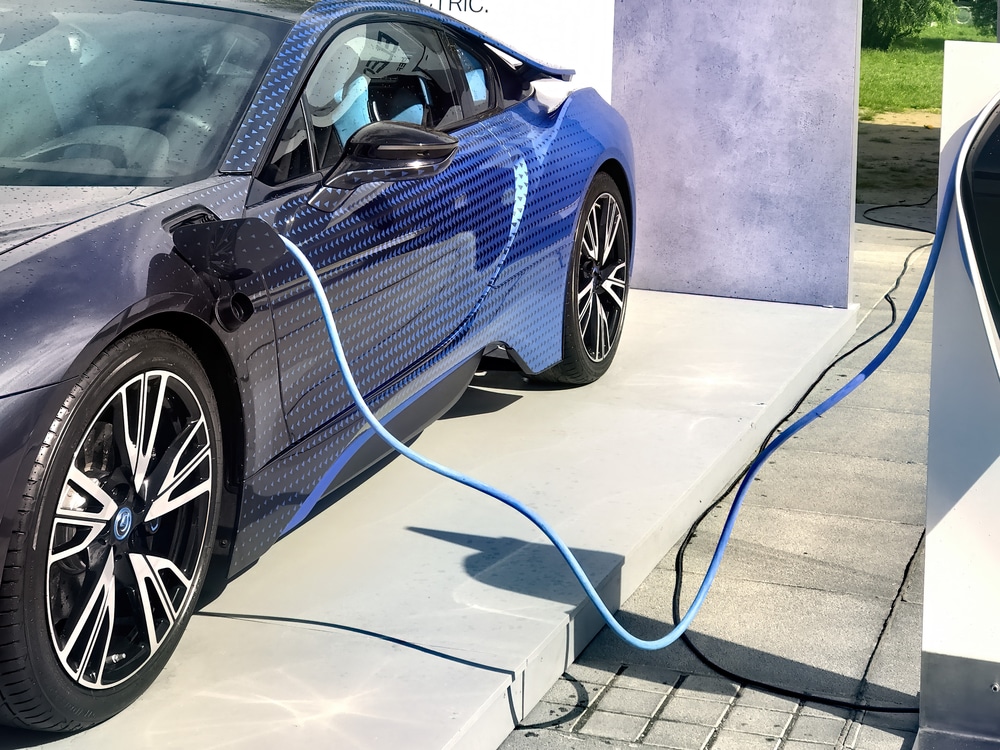
Article At A Glance
- Lithium-ion battery testing is crucial to ensure safe and optimal operations of electric vehicles.
- Safety tests mitigate risks and uncover potentially dangerous malfunctions.
- Optimizing battery performance, efficiency, and durability is essential for EV manufacturers.
Lithium-ion batteries have come a long way since their creation. They are more efficient than ever and play a major role in many people’s everyday lives. However, with so many recent lithium-ion battery testing and safety innovations, many people have trouble keeping up with the technology.
That’s why Dynamic Manufacturing Inc. is here to explain more about lithium-ion batteries safety and testing and their recent advancements.
Dynamic Manufacturing Inc. is one of Chicago’s leading remanufacturing and electrification companies. If you need top-quality lithium-ion battery testing in Chicago, contact Dynamic Manufacturing Inc.
The Significance of Lithium-Ion Battery Testing in the Automotive Sector
Electric vehicles (EVs) are becoming more prevalent in American society. These vehicles utilize lithium-ion batteries instead of fossil fuels, allowing Chicago residents to lower their carbon footprint without sacrificing transportation.
However, electric vehicle manufacturers must test their lithium-ion batteries to ensure safe and optimal operations. Below are a few reasons why lithium-ion battery testing is so important.
Ensures Reliability and Compliance in Large-Scale Manufacturing
Over the last few years, e-scooters and e-bikes have experienced a drastic surge in battery fires. This is due to non-compliant lithium-ion batteries that must undergo proper testing procedures. Manufacturers must test each lithium-ion battery to ensure everything functions properly and complies with strict protocols.
Failing to perform risk assessment tests results in faulty products that can jeopardize an electric vehicle’s performance and even put the driver in danger.
Additional Read: How High-Voltage Batteries Are Enabling Electrification In New Markets
Addressing Safety Concerns and Mitigating Risk
Since faulty lithium-ion batteries are prone to thermal runaway and can start fires, they undergo extensive safety and abuse testing to mitigate risks and uncover potentially dangerous malfunctions. These tests assess the batteries’ pressure and temperature sensors to identify abnormalities that adversely affect the vehicle and the battery. After the tests conclude, manufacturers can incorporate shutdown protocols or preventative measures if they discover any hazardous battery issues.
Competitive Edge Through Optimized Battery Performance
Electric vehicles need reliable and long-lasting batteries to maintain optimal performance for lengthy distances. Manufacturers want their lithium-ion batteries to outshine the competition and conduct multiple performance tests to ensure the best quality products.
Evolving Battery Testing Techniques and Technologies
Lithium-ion battery testing progresses at a rapid rate. For example, BINDER utilizes advanced battery test chambers to make performance, stress, and aging testing easier and more accurate. They feature detailed safety packages for enhanced protection while allowing the operator to customize the batteries to their customers’ demands.
These chambers assess the battery’s behavior and help push the industry forward with trusted energy storage solutions.
Safety First: Mitigating Battery Risks Through Comprehensive Testing
Again, since batteries move electrons between electrodes, they are prone to fires and can even explode in certain situations. To combat this, manufacturers perform numerous safety tests to prevent overcharging and the effects of mechanical abuse. They analyze the battery’s internal temperature, energy density, anode and cathode materials, and more to ensure everything operates safely.
Since lithium-ion batteries have higher energy densities than other battery variations, even the slightest design flaw can result in catastrophe. During safety testing, every battery must meet specific temperature, voltage, and current specifications to prevent malfunctions. These malfunctions can cause the battery to over-discharge or overcharge.
Overcharge leads to electrolyte decomposition, cathode destabilization, and lithium dendrite formation. These problems cause the battery’s temperature to skyrocket, significantly increasing the chances of thermal runaway incidents and fires.
While over-discharges don’t cause fires and other severe safety hazards, they can result in electrolyte decomposition and copper dissolution. When a battery over-discharges right before a charge, dissolved copper can form over the separator, anode, and cathode, causing thermal runaway. Also, extreme overdischarges can cause the cell to die.
Lithium-ion battery safety tests identify these issues and other malfunctions that negatively impact the battery’s performance or create safety concerns.
Optimizing Battery Performance and Efficiency
Although lithium-ion batteries offer several advantages other batteries can’t provide, they still experience performance issues that prevent widespread acceptance, with longevity and operating problems at the forefront.
To prevent these issues, manufacturers use load cells that measure the battery’s performance and mechanical properties. They administer controlled loads to the lithium-ion batteries and monitor their responses. They assess the battery’s strain, force, and displacement responses to uncover its durability, performance, and more under various conditions.
Manufacturers also use load cells to examine the battery’s energy density and capacity. They put the battery through numerous load profiles and measure affected electrical outputs, allowing manufacturers to improve its energy storage capabilities. This is essential for EV manufacturers since they can use the information to improve their batteries’ lifespan and overall performance.
Additional Read: Unveiling The Lifespan Of Electric Car Batteries: How Long Do They Truly Last?
Case Studies: Leveraging Advanced Battery Testing for Better Results
A recent study examined several new nanomaterials to see if they function better than the active materials within modern lithium-ion batteries. They believed the nanomaterials would increase the batteries’ performance and overall quality. The scientists completed three tests focusing on performance and longevity.
Although the study didn’t result in efficiency or lifespan breakthroughs, it generated new information that researchers could use to improve the batteries’ performance in future studies.
Another study assessed graphite within lithium-ion batteries. Graphite is the most prevalent anode material in lithium-ion batteries but features a restricted capacity and is susceptible to short-circuiting.
The researchers used nanosecond PLA (pulsed laser annealing) to enhance the graphite anodes’ current capacity and performance. The study found that nanosecond pulsed laser annealing heightened the graphite anodes’ current capacity by 20% and their cyclability. It also diminished solid-electrolyte interphase formation, further increasing their performance.
Dynamic Manufacturing: Your Trusted Partner in Advance Battery Testing
If you need an experienced lithium-ion battery testing company to assess your batteries and ensure safe and efficient operation, contact Dynamic Manufacturing Inc. We’ve offered first-class remanufacturing, electrification, and machining solutions for nearly 70 years, giving us the experience to handle all your lithium-ion battery safety testing needs.
Call Dynamic Manufacturing Inc. at (708) 343-8753 or contact our team online to see what we can do for you today!




